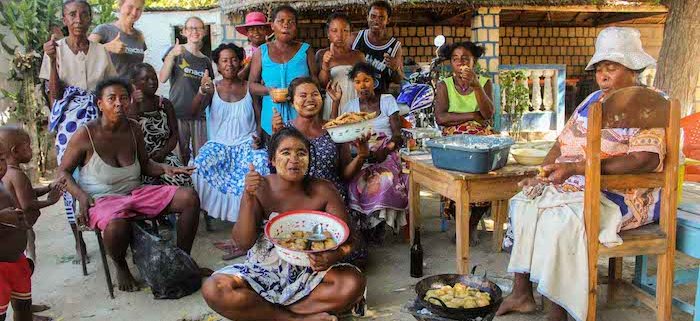A Healthy Life From a Healthy Sea
At the beginning of the year, three German students came to Reef Doctor to start an aquaculture farming pilot project in the Bay of Ranobe. In this blog, Jasmin, Wiebke and Anna tell you more about their project, objectives and hopes.
“Our project comes from the student initiative Enactus Aachen e.V., Germany, a registered association composed of students of the RWTH and FH Aachen since 2015. We have made it our mission to improve the living standard, the quality of life of people in need, and to implement ecologically sustainable projects. According to the principles of social entrepreneurship, we are developing projects that create long-term economic benefits for our target groups. This is how we establish sustainable structures together with our local partners and provide help for self-help.
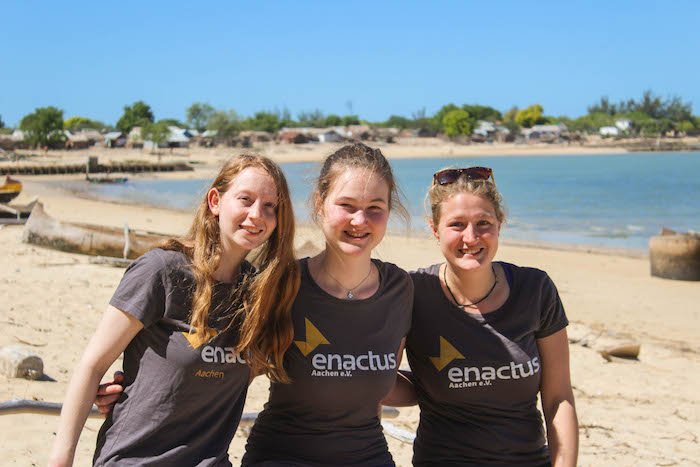
At the moment ex aqua itself contains 11 members, 3 of us traveled to Madagascar in January to make the first steps in initiating our project, together with our partner Reef Doctor. But let me start at the beginning:
On the island Madagascar, the fishing industry is the base of existence for many coastal communities. The urgent problem of overfishing is threatening their already small income of less than $2 per day. Due to the low availability of fish and lack of income, there is lower access to food, causing many people to suffer from malnutrition. A major consequence is that 50% of the children under the age of 5 are affected by anemia. The region of Toliara where our project takes place is the poorest region of Madagascar. Due to long dry periods, there is not much opportunity for growing any vegetables. Another problem is the degradation of the coral reef, caused by overfishing, coral bleaching, and eutrophication, resulting in a loss of habitat for many target fish.
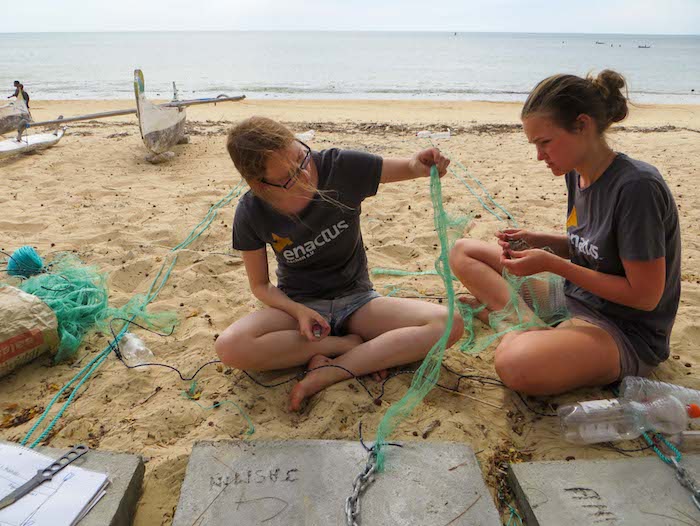
Our solution is the concept of ocean farming. Our vertical farming system grows algae, peppered with seedlings, along ropes. Algae farmers attach these ropes to buoys, which are chained to the ocean floor. From that point forward, the system requires zero inputs, making it the most sustainable form of biomass production on the planet, while sequestering carbon and rebuilding reef ecosystems. The algae are very nutritious and so, they are the perfect addition to the local food, which consists primarily of rice. Another great possibility is created by selling the algae to local restaurants who can use it to earn a fair price.
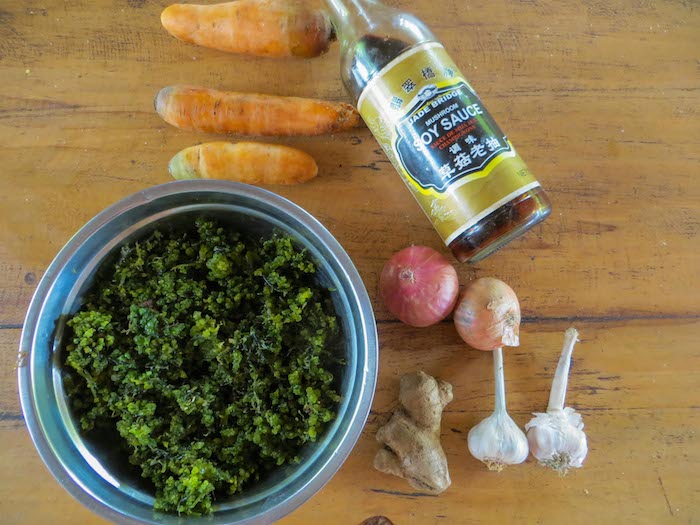
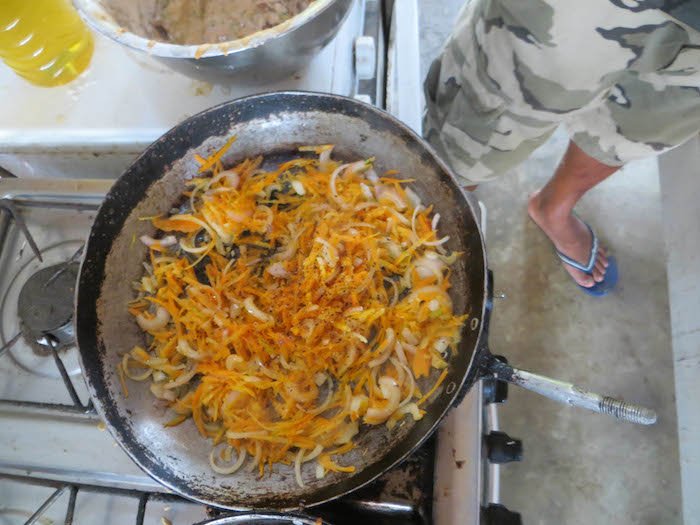
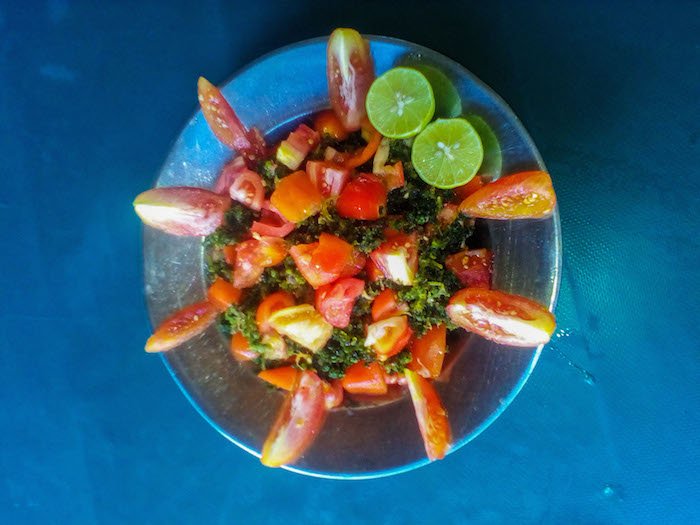
Since this income would not be enough to support a whole family, we also grow sponges along the algae lines, which lay just over the bottom. Together with the algae they filter the water while giving the reef and fish population a possibility to recover. Sponges also have the advantage of being a great export product, being light and easy to prepare, so our farmers have a minimal amount of labour to perform in exchange for a good income.
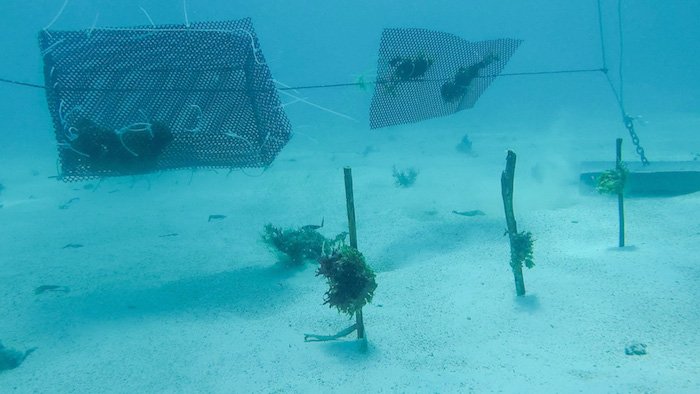
Together with Reef Doctor, we have created a prototype to be placed in the ocean right in front of Reef Doctor’s base. Furthermore, we made contact with the women’s association of Ifaty, in order to collaborate on incorporating the algae into their daily diet. We created some cooking experiments on camp (and most of the people liked what we did!), and we also successfully made contact with local restaurants.
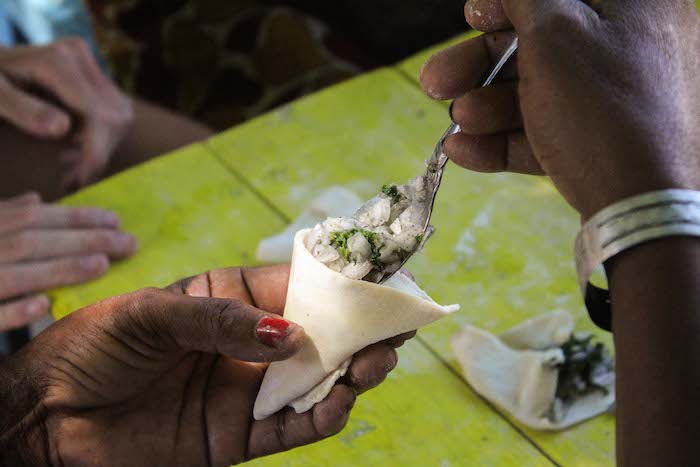
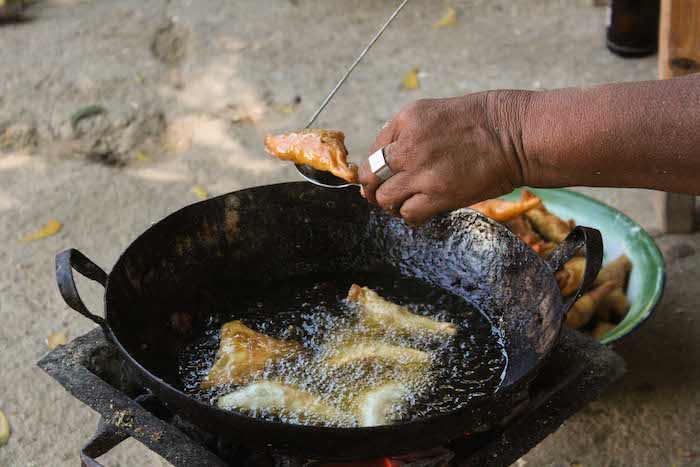
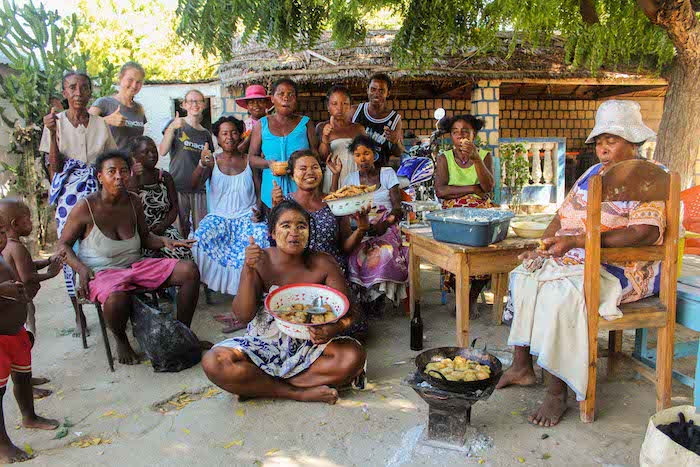
The next steps are to supervise the prototype and evaluate its current effectiveness, and to make improvements to the system as best as possible. In the middle of this year we will return to start the actual project with fishermen from the village. Stay tuned for further updates!”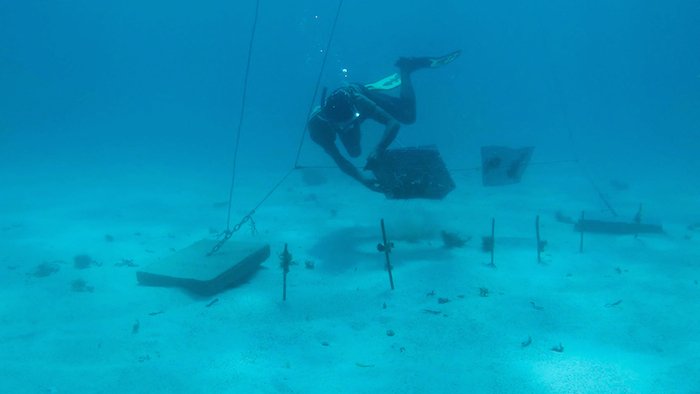
Written by RD volunteer Wiebke Thürlings
Photo credit: James Woodruf & Karin Moehler

